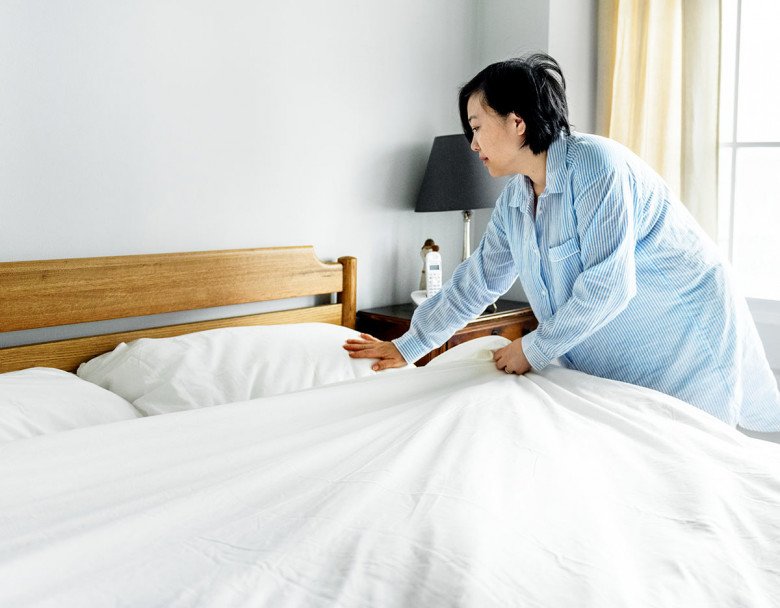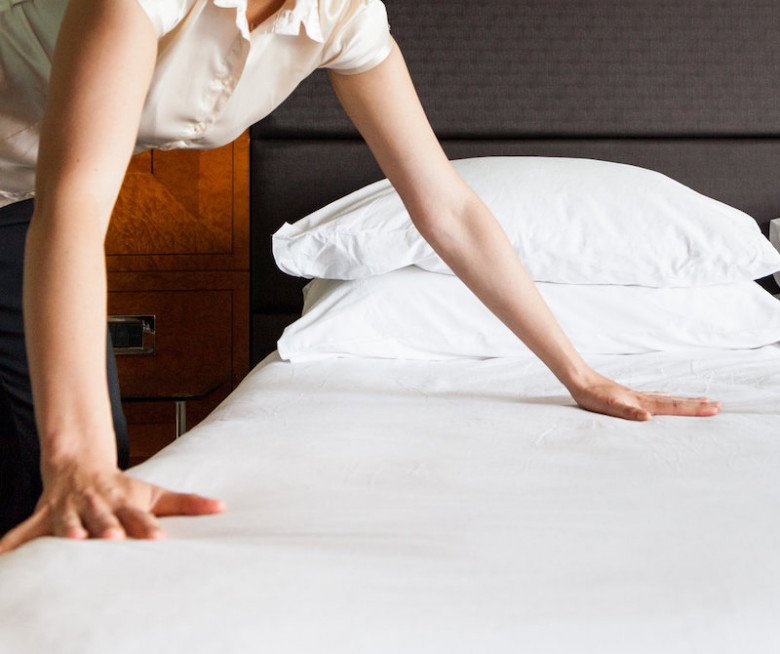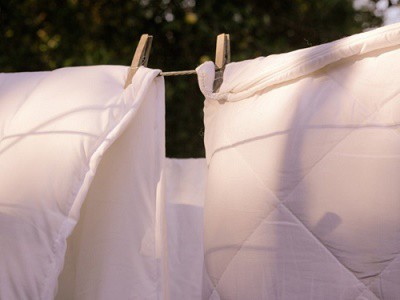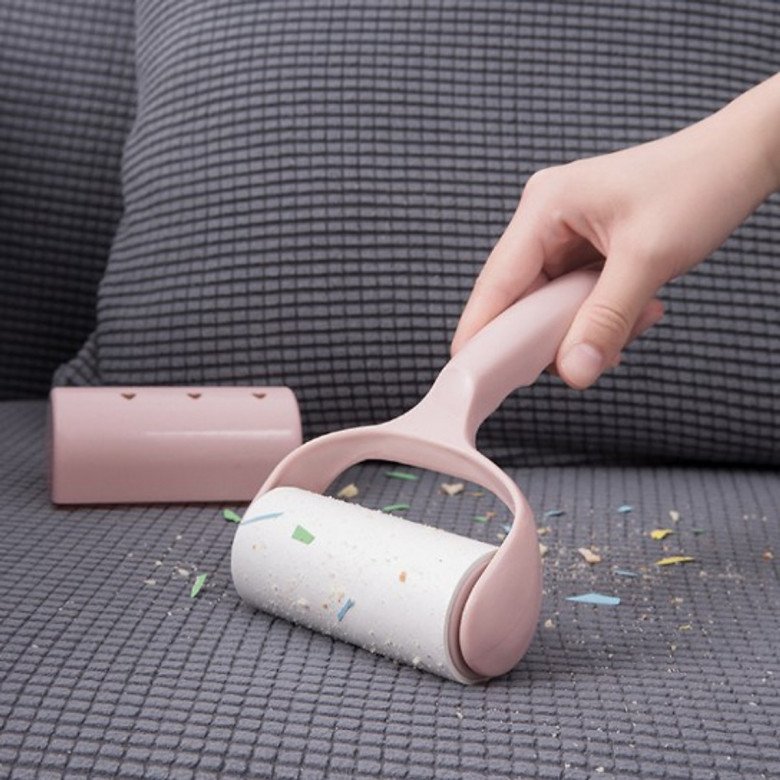You may be doing more harm than good by making your bed as soon as you wake up. The warmth and moisture from your sleep create an ideal environment for bacteria to thrive, and folding your blanket immediately can trap these bacteria, affecting your health.

Is it true that we shouldn’t fold our blankets right after waking up?
During sleep, our bodies release over 140 chemicals through respiration and more than 150 chemicals through perspiration. Not to mention the dead skin cells, CO2, and other gases escaping from our pores. Bedding, including blankets, sheets, pillows, and mattresses, absorbs these waste products the most.
When you wake up and feel the residual warmth in your bedding, it’s due to the sweat and waste products that have accumulated. Folding your blanket at this time traps the gases and, combined with high humidity, creates a favorable environment for bacteria, bed bugs, dust mites, and mold to flourish. This can lead to the spread of dangerous parasitic diseases, affecting your health and skin.

Blankets, sheets, pillows, and mattresses harbor a multitude of bacteria and waste products that are invisible to the naked eye.
Experts advise against folding your bedding immediately after waking up. Instead, attend to your personal hygiene and have breakfast first, allowing your bedding to air out and reduce moisture and bacteria. Then, give your blanket a good shake before neatly arranging it. This approach ensures your bed looks tidy while preventing bacterial growth and the incubation of harmful pathogens.
Additionally, regular and proper laundering of your bedding will contribute to maintaining hygiene and promoting good health.
Frequency of Bedding Laundry
Blankets, sheets, pillows, and mattresses are daily companions that ensure your family’s health and contribute to a good night’s sleep. Each item has its own laundry frequency to stay clean without compromising its quality:
– Blanket cover: If used daily, wash the blanket cover once or twice a week to maintain hygiene. If the blanket is stored in a closet and rarely used, wash it before and after use to avoid excessive labor and color fading. Consider replacing your blanket every five years.
– Blanket filling: Even with a blanket cover, the filling should be washed at least once a year. After washing, ensure the filling is completely dry, preferably under direct sunlight, to prevent dampness and mold.
– Pillowcases and bed sheets: As they come into direct contact with the skin, they should be laundered weekly. It’s advisable to have a few extra sets of pillowcases and sheets for regular changes.
– Pillow filling: Wash the pillow filling approximately three times a year, ensuring it’s thoroughly dried and addressing any yellow stains.
– Mattress: If the mattress gets stained with liquids like water or milk, clean it immediately to prevent stubborn residue. You can clean the mattress every six months by dry cleaning or wiping its surface.

Regular laundry is essential for blankets, sheets, pillows, and mattresses.
Daily Bedding Hygiene
In addition to periodic laundry, consider investing in a handheld vacuum cleaner or a roller to remove dust and hair from your bedding daily. These tools will help keep your bed clean and free of hair, pet dander, and dust.

Maintaining a clean bed is essential.
Furthermore, investing in an air purifier for your bedroom is a wise choice for your health, as it reduces dust and bacteria, elevating your living space.
Why Do People Hang Water Bags at Their Windows in Summer? I Want to Know the Reason and Do the Same.
Introducing the ancient practice of hanging water bags in front of windows – a traditional technique with a modern twist. Discover the hidden benefits and unlock the secrets to a healthier and more vibrant home. Learn how this simple act can transform your living space and bring a touch of nature’s magic into your everyday life. Uncover the unknown and explore a whole new world of possibilities with this intriguing practice.



































